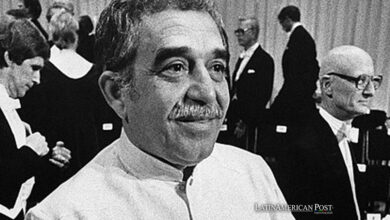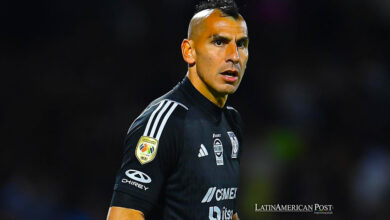Alias ‘Don Mario’ and the legacy that did not die with Escobar
The justice system attributes crimes of more than 6,000 victims to the founder of the largest criminal organization in South America

One of the "big fish" of drug trafficking in Colombia, also considered the "father" of paramilitarism, was extradited to the United States to answer before New York courts over the accusations against him. Daniel Rendón also known as 'Don Mario' helped to create the current most powerful criminal organization in Colombia, which some compared as part of the legacy of Pablo Escobar.
Leer en español: Alias 'Don Mario' y el legado que no murió con Escobar
Since 2009, 'Don Mario' was serving a sentence of 18 years in prison for the kidnapping of 25 people, and other trial processes for crimes against more than 6,000 victims were advanced. Among these crimes there are homicides, kidnappings, drug trafficking, torture, forced disappearance, terrorism, and the creation of armed groups outside the law.
Like Pablo Escobar, 'Don Mario' was born in a humble family in Antioquia. He studied until fourth grade, but his skills to make accounts were notorious from that moment. Years later, such skill would help him to be in charge of the millionaire finances of powerful paramilitary blocs and drug traffickers.
'Don Mario', who will be tried in a U.S. court for the crimes of terrorism and corruption, controlled structures such as the Centauros Bloc (Bloque Centauros, in Spanish), Gaitanist Self-Defenses of Colombia (Autodefensas Gaitanistas de Colombia, in Spanish), and Black Eagles (Águilas Negras, in Spanish). These groups operated in the states of Boyacá, Cundinamarca, Meta, Guaviare, Casanare, and Urabá.
Rendón is considered the main founder of the Gulf Clan, a paramilitary organization that controls more than half of the drug that leaves Colombia, which is positioned as the largest in South America. According to information from the Ministry of Defense of the country, the Gulf Clan maintains criminal alliances with drug trafficking structures in Costa Rica, Honduras, Guatemala, Panama, and Mexico.
The government estimates that this criminal organization has more members than the guerrilla of the National Liberation Army (Ejército de Liberación Nacional aka ELN, in Spanish) and reaches more than the 3,000 men Pablo Escobar controlled in his time. Although its distribution figures of drug trafficking in the world do not reach 80% of the total industry that Escobar achieved, the group does stand out as one of the main threats for Colombia after the signing of the Peace Agreement.
The legacy that did not die with Escobar
The painful mark of violence and drug trafficking that Colombia exported to the world in past decades was not buried with Pablo Escobar. The fall of the "king of cocaine" gave way to the entry of new actors, and the absence of a large capo motivated the former guerrilla group, FARC, to seize more crops and laboratories than they already had under their command.
However, what it did evolve with the murder of Escobar, who came to be considered by Forbes as the sixth richest man in the world, was the model of drug trafficking. According to the doctor in History of the National University of Colombia (Universidad Nacional de Colombia, in Spanish), Carlos Medina, the new forms of drug trafficking are much more sophisticated and businesslike than before. That is because "it does not seek to go by alternative routes, but within the framework of the opening of markets, it is articulated with conventional commercial regimes of the Latin American economy," Medina explains in conversation with Infobae.
Under this illegal model, the link between drug traffickers and politicians becomes much more necessary than in past decades. It is for this reason that, despite the fact that 'Don Mario' had a request for extradition to the United States since 2009, only until now is it happening.
His time of capture provided information to the Colombian justice on Rendón ties with political entities and high-ranking members of the armed forces. Before his extradition on Monday, April 23, 'Don Mario' gave information to the authorities about the links of businessmen and politicians with the strongest drug trafficking organization in Colombia.
For the authorities of the country the interrogation process of the drug trafficker had already reached its end. However, representatives of the National Victims Bureau (Mesa Nacional de Víctimas, in Spanish) regretted that Rendón left the nation without telling the full truth of the two decades of criminal activities that he committed and without paying in Colombian territory for his crimes.
Latin American Post | Krishna Jaramillo
Translated from "Alias 'Don Mario' and the legacy that did not die with Escobar"





